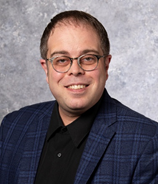03/11/2020: Due to concerns about the Coronavirus disease (COVID-19), ACS DFW is cancelling the scheduled seminar below by Dr. Nick Tsarevsky. We plan to re-schedule this seminar in the future.
############################################################################
ACS DFW Local Section is happy to be hosting a presentation by Professor Nick Tsarevsky on March 13, 2020 at 6:30 pm at the University of Texas at Dallas (Room MC 2.410).
Early Success Stories of Analytical Chemistry
Early advances in analytical chemistry, dating from the XVIIth to the first half of the XIXth century, including the discoveries of qualitative tests and the development of several methods for the quantitative analysis of complex mixtures, had an immense impact on science, technology, and some other, “less obvious”, disciplines. Two case studies from the history of analytical chemistry will be presented. The first is related to the analysis of mineral waters, including some early attempts to prepare artificial analogues of natural mineral waters. The second concerns the discoveries of multiple color and precipitation reactions, as well as the development and improvement of instruments such as spectroscopes, microscopes, and colorimeters, which made it possible for a new scientific field to emerge that could be used to solve criminal cases – forensic chemistry.
About Professor Nicolay V. Tsarevsky
Department of Chemistry, Southern Methodist University, Dallas, TX 75249

Dr. Nick Tsarevsky obtained M.S. degree in theoretical chemistry and chemical physics in 1999 from the University of Sofia, Bulgaria, and Ph.D. degree in chemistry in 2005 from Carnegie Mellon University under the supervision of Prof. Kris Matyjaszewski. He was Visiting Assistant Professor at the Department of Chemistry at Carnegie Mellon University (2005-6), and a member of the founding team of ATRP Solutions, Inc., of which he served as Chief Science Officer (2007-2010).
He joined the Department of Chemistry at Southern Methodist University in the summer of 2010 as an assistant professor, and in 2016 he was promoted to associate professor with tenure. He has authored and coauthored 99 peer-reviewed journal articles and book chapters, 1 textbook, and has served as the co-editor of 5 books. He received several awards including, recently, an IUPAC Young Observer Fellowship and an NSF CAREER award. Research interests include polymerization techniques, functional materials, coordination chemistry and catalysis, and the chemistry hypervalent compounds, in addition to history of chemistry and chemical education. He serves as the program chair of the Division for the History of Chemistry (HIST) of the ACS.


